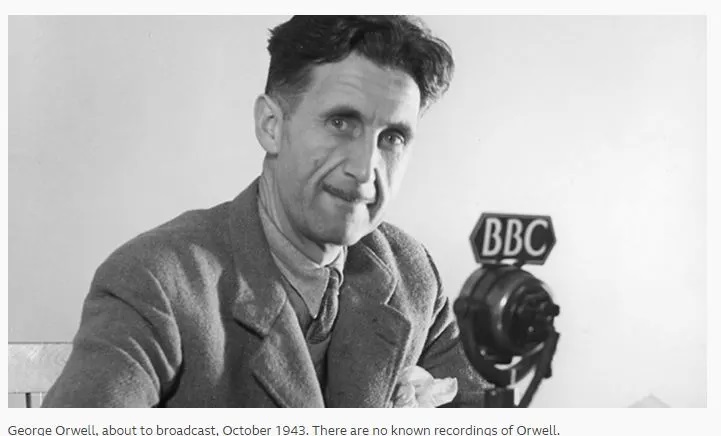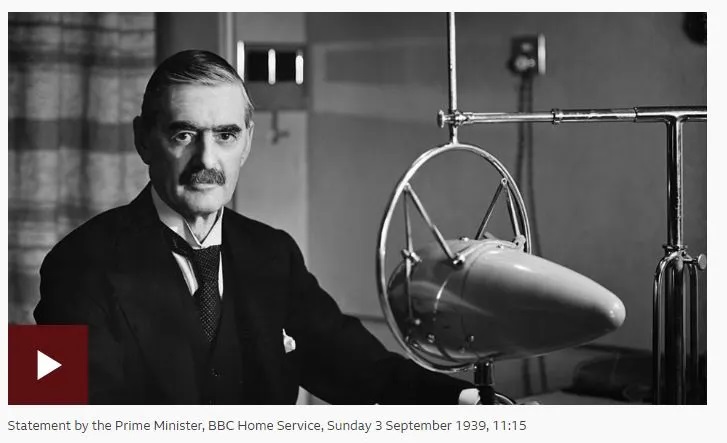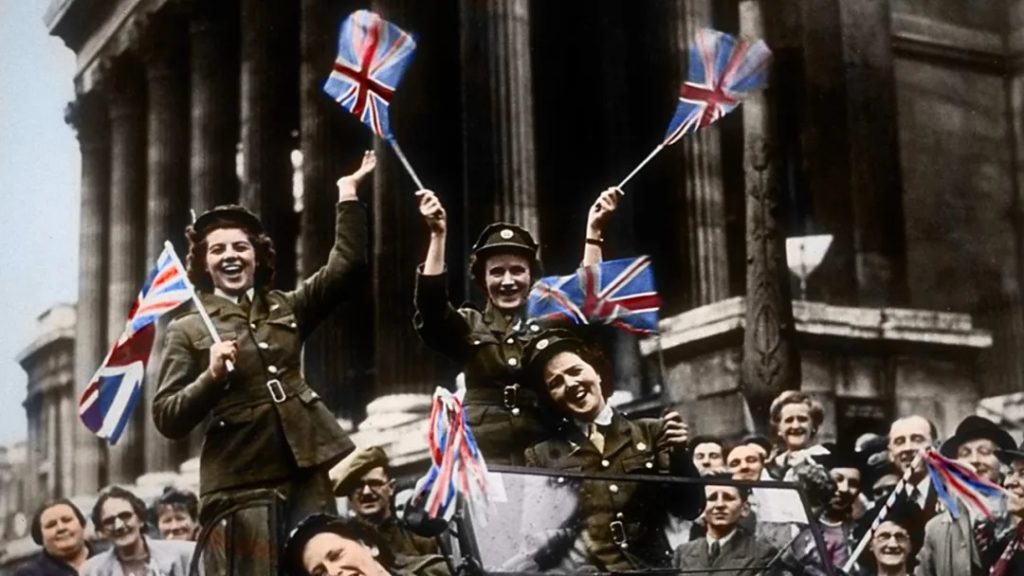NOVEMBER 16, 2020
I wear many hats, and aside from working on the Connected Histories of the BBC project (CHBBC), I am an English teacher. As the project develops, and new archive materials are released, I’m fascinated by the wealth of resources on offer, and feel profoundly privileged to read materials ahead of their release. Today’s blog highlights some aspects of the “Voices of the BBC” websites that we are creating for the BBC as part of this project, and how they can be used in teaching.
Our overarching aim in the project is working to make the archive materials from the BBC’s oral history collection available to the public. The “Voices of the BBC” websites represent just one part of our work, offering the public some tantalising glimpses of the BBC’s collections, while, behind-the-scenes, we slowly get on with creating a database which will provide access to a huge range of materials. Each edition of “Voices of the BBC” is built around a theme, and includes audio and video clips, documents, news bulletins and interviews from those who witnessed major events. For teachers, this is an incredible, rich archive of primary sources that can be used to broaden understanding of topics, and supplement lessons. They also provide an opportunity for students who are doing independent research to access primary sources of information.
Literature
Andrea Levy’s brilliant novel ”Small Island”, which appears in the A Level literature syllabus of several exam boards, tells the story of Jamaican immigrants trying to adjust to life in England. In “Voices of the BBC: People, Nation, Empire”, there is a section called “Caribbean Voices”. It talks about how the BBC provided programming for those living in the Caribbean and includes a film clip from a 1944 cinema newsreel, “West Indies Calling” about some of those who came over to help with the war effort. “Caribbean Voices” gives some insight into the development of programmes for those new arrivals to British shores. Clips from the programmes are available, and allow us to see the types of programming that Andrea Levy’s Queenie and Hortense may have listened to, before arriving here.
Monica Ali’s book “Brick Lane”, another A-level text, talks about the life of Nazneen, a Bangladeshi woman who moves to London. Another part of the “Voices of the BBC” websites focuses on the role of the BBC in India, charting the programming available to those in India both in the days of the British Empire, and after independence. In interviews recorded specially for this project, Mark Tully and Satish Jacob share their eyewitness accounts of some of the major political changes that took place such as the declaration of a State of Emergency by Prime Minister Indira Gandhi in 1975, the attack on the Golden Temple, Operation Blue Star, and the creation of Bangladesh in 1971.
In addition, there are images of George Orwell, and Louis MacNeice, along with details of their work for the BBC: https://www.bbc.com/historyofthebbc/100-voices/people-nation-empire/literary-india

These clips and accounts give valuable insights into the background of some of the literature in the A level curriculum, and provide material that can be used to contribute to the understanding of the novels’ context.
Cultural Change and Development of Language
A significant part of the study of the English language, and of cultural change, includes study of how language changes and develops over time, and the influence of different cultures and pronunciations. Scattered throughout the “Voices of the BBC” websites are interviews showing how the BBC adapted with the times, moving from the BBC’s use of modified ‘Received Pronunciation’ to the use of local voices and dialects. An example of this is in the section called “London Calling” which features a clip from an interview from “Women’s Hour” in 1976, with the Jamaican poet Louise Bennett. She was one of the first regular performers on “Calling the West Indies” after the war. This clip represented a radical departure from the usual BBC style which can be heard in other clips, such as that of John Snagge.
In particular, “Voices of the BBC: People Nation and Empire” focuses on how Britain began the process of adapting to its multi-cultural and post-Imperial status, and the challenges the BBC faced in representing the changing nature of its audiences. This edition of “Voices of the BBC” includes a clip from the opening edition of the documentary trilogy, “Windrush”, produced by Trevor Phillips. There are clips from some of the earliest BBC programmes for immigrants, such as “Make Yourself at Home,” and programmes that allowed regional and marginalized voices to be heard. Olive Shapley talks about how armed with a mobile recording van, she was able to get out of the studio and interview people going about their everyday lives in the streets. The main image on our project website is Olive Shapley with Mrs Emerson in the colliery village of Craghead, County Durham BBC North Region in 1939.
Broadcasting interviews like this represented a radical departure from normal BBC practice as set out by its first Director-General, John Reith. In 1924 he wrote a memo to staff declaring that “The speakers on Sundays should be men who can really get their message over, with a good voice and correct diction, and preferable preachers with a reputation.” That statement in itself is a fabulous discussion topic for a lesson, debate or assignment.
The clips, images and documents in the “Voices of the BBC” websites are a treasure trove of snapshots of cultural change, and offer gems of information and visual representations of cultural change, and national diversity. I would urge you to search for your own diamonds in these carefully curated resources.
Poetry
I’ve always loved Wilfred Owen’s war poetry, particularly the visceral imagery of “Dulce et decorum est.” While one of the editions of “Voices of the BBC” focuses on the Second World War, rather than the First, they still offer clips that give an insight into the life of a nation at war, and the inescapable irony that despite Owen’s derision of the idea that it is fitting to die for one’s country, and his disturbing imagery, the world went to war again a few years later. For students who have no experience of war, to listen to the chilling clip of Neville Chamberlain announcing that this country is at war gives an understanding of the solemnity of the event that is unparalleled: https://www.bbc.com/historyofthebbc/100-voices/ww2/country-at-war

I found the Immersive Virtual reality Education Production of the 1943 Berlin Blitz 360˚ to be particularly fascinating. It uses original archive recordings from September 1943 when the BBC’s war correspondent, Wynford Vaughan-Thomas, boarded a Lancaster bomber to transmit the experience, and recreates a view from the cockpit on that night. He described it as “the most beautifully horrible sight I’ve ever seen”. As a writer, I can see how that quote could be used as a writing prompt for a piece of creative writing.
History
There is a wealth of material for English teachers in the archive, but even more for History teachers. I’m old enough to remember the fall of the Berlin Wall, and the Cold War, the focus of “Voices of the BBC: the BBC and the Cold War.” The Cold war is a large part of the History syllabus. I didn’t fully understand the significance at the time (and I wonder if we ever know how truly significant any event is until we’re able to judge it from a distance), but it was fascinating to listen to Bridget Kendall, the BBC’s former Moscow Correspondent, give a vivid behind-the-scenes account of the rise of Perestroika and Glasnost and the ultimate end of the Soviet Union.
In a new interview recorded specially for this project, Gienek Smoller, who at the time was the assistant head of the BBC Polish Section, reveals how an IBM computer was used to get news in and out of Poland during Martial Law. He talks about his experiences working for the reform organizations “KOR” and “Solidarity,” and fighting for freedom.
Another fascinating section talks about the threat of Nuclear destruction and includes the controversial BBC film “The War Game”. Originally scheduled for transmission in 1965, and banned by the BBC, it was released twenty years later.
For those studying the Second World War, the Voices of the BBC: the BBC and World War Two is particularly relevant. There are interviews with those working behind the scenes to bring the news, eyewitness accounts of major events, and diary entries from the Mass Observation Archive. There are accounts of how the BBC helped the war effort, and even how the music played in broadcasts provided secret messages to resistance fighters in occupied Europe.

There is so much more to draw from in the “Voices of the BBC” collection, with resources for the Sciences (“The Birth of TV” and “Radio Reinvented”), Arts, Media History, Journalism, Politics and many other subjects. Every time I approach the collection, I learn something new, or find a new insight. I could easily keep writing, but perhaps it would be good to hand over to the other teachers out there to see how they can use this incredibly diverse and valuable collection of resources.
If you’ve used any of the archive materials in your lessons, we’d love to hear from you. If you’d like to share your lesson plans using the materials, we’d love to put them on our website.
Denice Penrose
November 2020



Leave a Reply